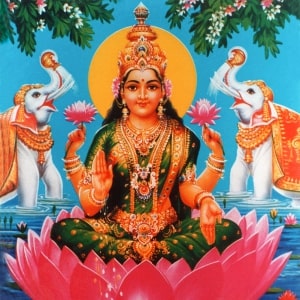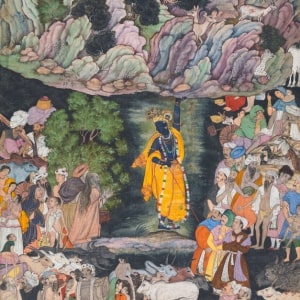Diwali, also known as Deepavali, is one of the most significant and widely celebrated festivals in India and among the Indian diaspora. It is often referred to as the “Festival of Lights” and holds immense cultural and religious importance. While Diwali involves various customs, rituals, and festivities, one of the central elements is the worship of Goddess Laxmi, the Hindu goddess of wealth and prosperity. In this article, we will explore the reasons behind the tradition and find answer for the question – why Laxmi Puja on Diwali is performed?

The Story of Diwali
Diwali’s origins are rooted in different legends, with one of the most well-known stories being the return of Lord Rama to Ayodhya after defeating the demon king Ravana. The people of Ayodhya celebrated his return by lighting oil lamps and bursting fireworks. Diwali is also celebrated to mark the return of Pandavas from their exile.
Why Laxmi Puja on Diwali?
The connection between Goddess Laxmi and Diwali lies in the belief that she visits homes during this auspicious period to bless them with wealth and prosperity. Laxmi Puja is performed to welcome her and seek her blessings.
- Welcoming Prosperity: Diwali is a time when people clean and decorate their homes, buy new clothes, and exchange gifts. These activities symbolize the preparation to welcome prosperity and abundance into their lives. Laxmi Puja is a way to acknowledge the importance of wealth in one’s life and to express gratitude for it.
- Spiritual Significance: While wealth and material prosperity are essential, Diwali also emphasizes the importance of inner wealth and spirituality. The illumination of lamps signifies the removal of darkness from one’s life and the awakening of inner light. Laxmi Puja helps individuals to focus on both their material and spiritual growth.
- Strengthening Relationships: Diwali is a time for families and communities to come together. Laxmi Puja is a unifying ritual that brings people together to pray for prosperity and well-being. It fosters a sense of togetherness and reinforces the bonds between family members and friends.
- Rituals and Traditions: The Laxmi Puja on Diwali involves specific rituals and traditions. People light oil lamps, offer flowers, sweets, and fruits to the goddess, and recite hymns and mantras. These rituals are believed to invoke the blessings of Goddess Laxmi.
- Economic Significance: For businesses, Diwali holds great economic significance. Many companies perform Laxmi Puja in their offices or shops to seek the goddess’s blessings for increased profits and financial success in the coming year.
Also Read: How to Explain Diwali to a Child?
Laxmi Puja on Diwali is not merely a ritual but a reflection of the Indian ethos that places immense importance on wealth, prosperity, and well-being. It is a celebration of the dual nature of human existence – the material and the spiritual. While Diwali allows people to revel in the joy of material success and abundance, it also encourages them to delve within, seeking spiritual growth and inner enlightenment.
The celebration of Laxmi Puja on Diwali unites individuals and families in their quest for prosperity and reinforces the idea that wealth should be used for the greater good, including helping those in need. This tradition is a reminder that true wealth lies not just in what one possesses but in the values of compassion, generosity, and spiritual contentment. As people light their homes and hearts during Diwali, they also illuminate their paths toward a brighter, more prosperous future, both materially and spiritually.





